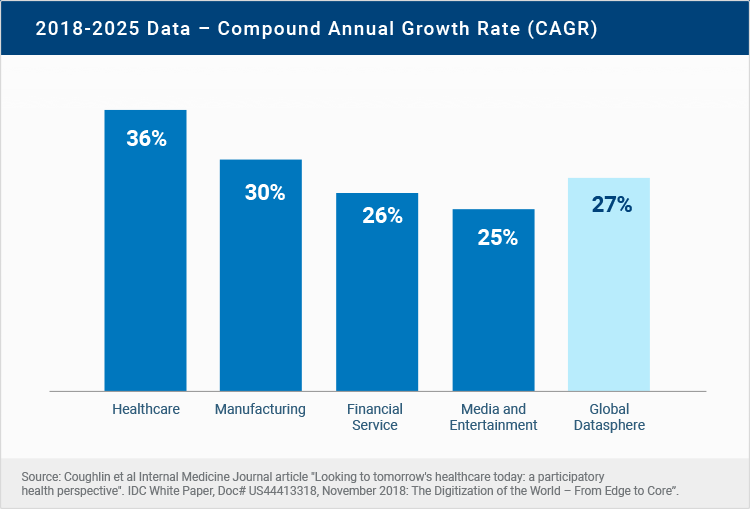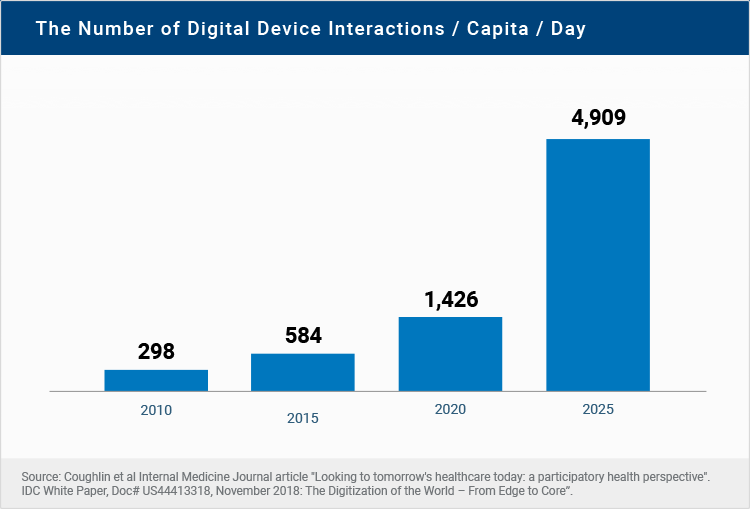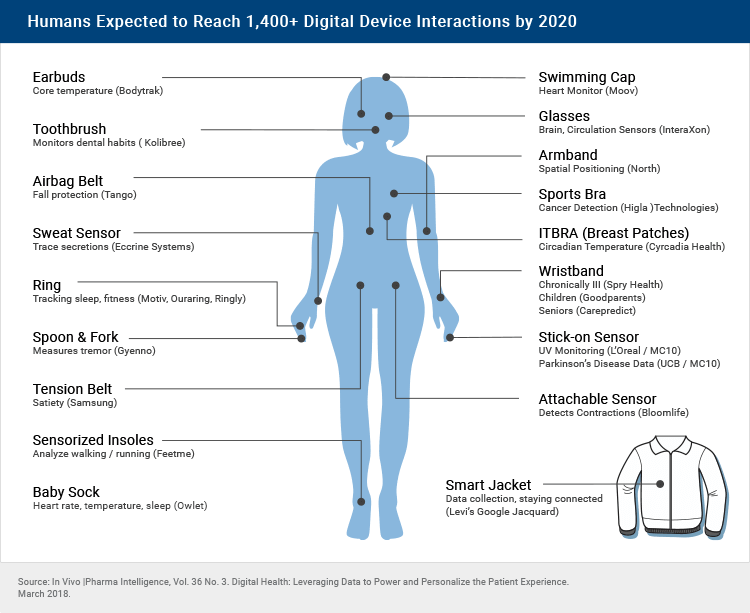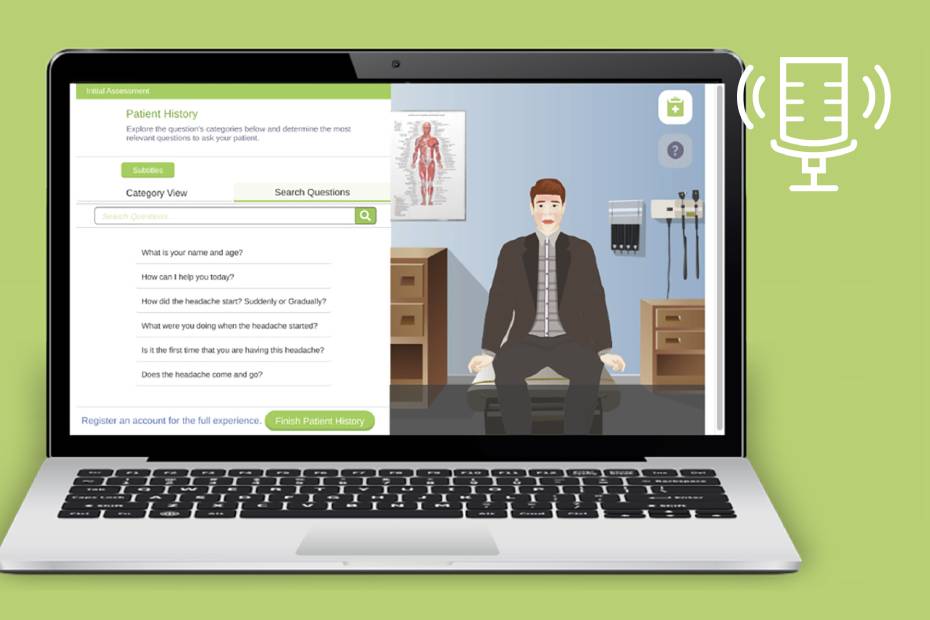This article originally appeared on the RBC Capital Markets website.
Healthcare data is fueling a remarkable transformation from healthcare to health, from treatment to prevention.
Humans are being digitized through new devices, apps and monitoring technologies, which are tracking, analyzing and storing this massive amount of data. The smart phone in your pocket is a prime example along with cloud computing, AI and the wearable on your wrist. Together, the data generated from these technologies is creating what’s been dubbed as an individual’s “data-ome.” All of which is setting the stage for a battle to access and utilize the digital representation of the world’s health and wellness.
A Healthy Outlook for Data
Every second, an exponential amount of healthcare data is generated and mined for valuable insights. Today, approximately 30% of the world’s data volume is being generated by the healthcare industry. By 2025, the compound annual growth rate of data for healthcare will reach 36%. That’s 6% faster than manufacturing, 10% faster than financial services, and 11% faster than media & entertainment.

It’s easy to see why data is driving healthcare. Humans are expected to reach more than 1,400 digital device interactions per person per day by the end of 2020, and nearly 5,000 in just five years. Much of that promises to be healthcare related.

New Innovations Bring New Possibilities
From earbuds that can measure your core temperature, to socks that can monitor a baby’s heart rate, to a sports bra that can detect cancer, it’s certain that healthcare technology will, one day very soon, literally touch us all on a daily basis. As consumer wearables increasingly converge with medical technology, the rise of comfortable, patient-friendly devices will increase customer compliance and improve data collection. The next advancements will do more than just collect data, but also suggest solutions and provide treatment. From a tiny ring that promotes deeper sleep to insoles that help improve your stride, technology is quickly personalizing healthcare at a massive scale.

$15-Trillion Quest for Wellness
People are living longer. Populations in emerging markets are exploding. Drug development costs are skyrocketing. These are just a few drivers of exponential growth in healthcare. In fact, the global healthcare budget will be an estimated and astounding $15 trillion by 2030.1 Digital health brings together a vast amount of industries that include genomics, ingestibles and implantables, wearables, sensors, retailers, social media, AI, analytics, clinical data and electronic health records just to name a few.
1 Source: Where healthcare’s big data actually comes from. Clin Chem Lab Med 57: 328-335 (2018). PwC “Driving the Future of Health ” (2019).
This article is intended as general information only and is not to be relied upon as constituting legal, financial or other professional advice. A professional advisor should be consulted regarding your specific situation. Information presented is believed to be factual and up-to-date but we do not guarantee its accuracy and it should not be regarded as a complete analysis of the subjects discussed. All expressions of opinion reflect the judgment of the authors as of the date of publication and are subject to change. No endorsement of any third parties or their advice, opinions, information, products or services is expressly given or implied by Royal Bank of Canada or any of its affiliates.



















